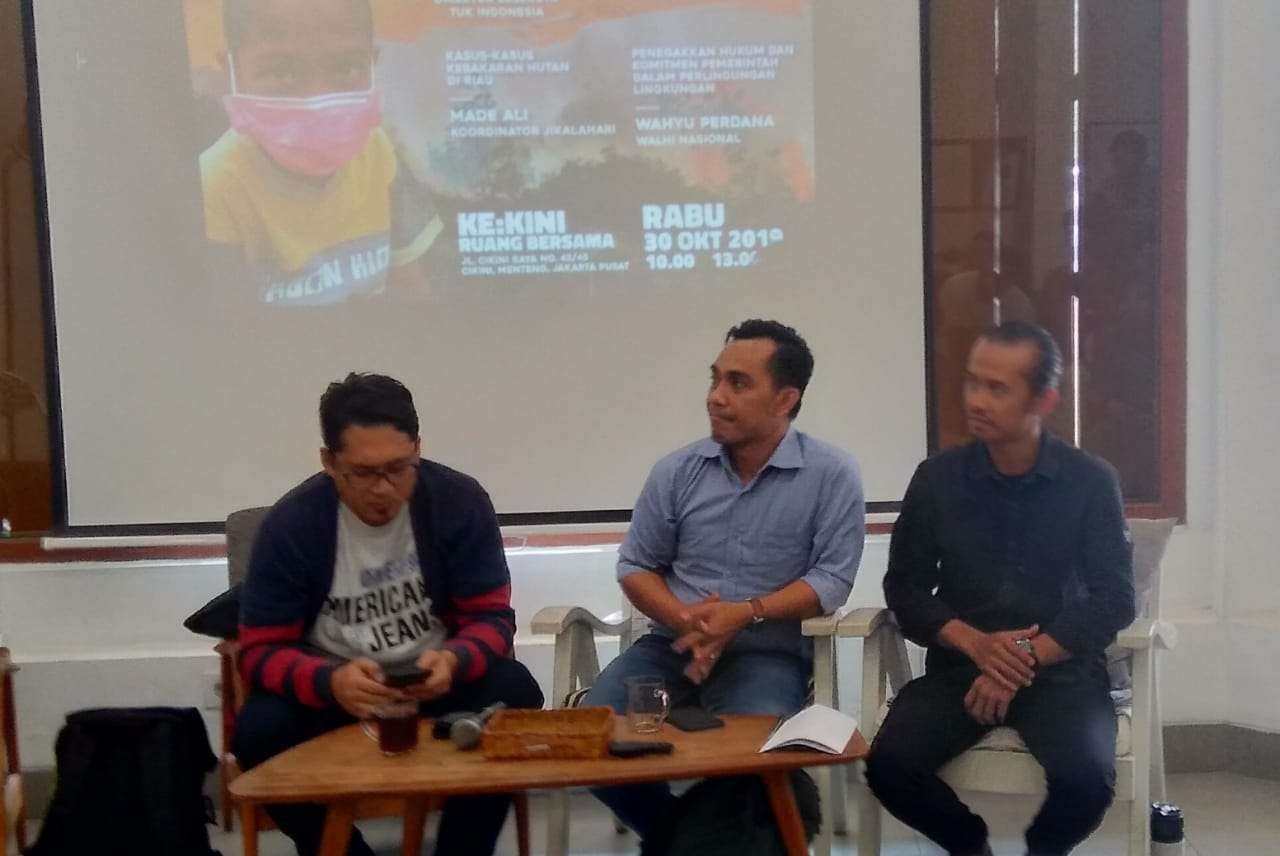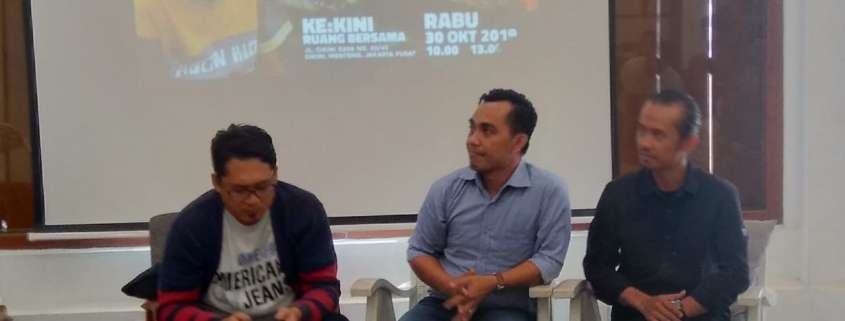30 October 2019 4 menit
State-Owned and Foreign and National Private Banks Exposed to Forest and Land Fires


17 holding groups controlling forest-burner companies have received at least US$19.2 billions in corporate loans and underwriting facilities since 2015.
Indonesian Ministry of Environment and Forestry (MoEF) has sealed off 64 companies in Sumatra and Kalimantan involved in forest and land fires in 2019. An investigation by TuK INDONESIA (Perkumpulan Transformasi untuk Keadilan) finds out that these 64 companies are controlled by 17 holding groups such as Austindo, Batu Kawan, Cargill, DSN, Genting Group, Harita Group, LG International, Provident Agro, Rajawali Group and Royal Golden Eagle. A financial analysis of these holding groups reveals that they have been receiving corporate loans and underwriting facilities amounting to at least US$19.2 billions since 2015.
The largest bank providing loan to the groups is Bank Rakyat Indonesia (BRI), followed by Maybank and Bank Nasional Indonesia (BNI). Indonesian banks dominate the top 10 lenders with the total loans of US$3.3 billions, followed by Chinese and Malaysian banks with US$2.0 billions and US$1.9 billions respectively. Edi Sutrisno, the Executive Director of TuK INDONESIA, said in his presentation that these lenders, many of which are foreign, were pursuing as much profit as possible for their shareholders and investors in their home countries at the expense of Indonesian forests, environment and people.
Forest and land fires in 2019 have mostly been occurring in the forest and non-forest areas such as peatland and mineral lands. President Jokowi, as what happened in 2015 fires, revisited Riau, this time to District Pelalawan. “He (the president) once said he would review the permits, and now in 2019 he says that such fires are products of organized crime,” noted Made Ali of Jikalahari. Ali went on saying that curbing forest and land fires cannot be done by simply improving environmental, forestry and plantation governance. “The MoEF, as the spearhead of the effort, should immediately communicate with the Financial Services Authority (OJK) and financial institutions to get them take part in curbing organized crime relating to forest and land fires by implementing stringent due diligent process and come up with pro-nature financing that contributes to preventing forest and land fires. The MoEF should also cooperate with international financial service authorities as various studies revealed that much of the financing came from outside Indonesia.”
Data from Wahana Lingkungan Hidup Indonesia (WALHI) for the January-September 2019 period show that hotspots have been detected in 837 concessions [HGU (land cultivation right): 440, IUPHHK-HT (Business Permit for Forest Timber Product Utilization-Industrial Plantation Forest): 235, IUPHHK-HA (Business Permit for Forest Timber Product Utilization-Nature Forest): 162]. At the same time the government repeatedly claims that forest and land fires management in 2019 is better than that in 2015, ignoring the fact that the number of hotspots has doubled since 2016.
The Campaign Manager of WALHI Eksekutif Nasional, Wahyu Perdana, expresses his regret over the government, which seems to deny and turn a blind eye to forest and land fires in corporate concessions. “This shows that the government still has a lot to do with regard to law enforcement against corporations. The failure to uphold rulings on reparation and environmental restoration in forest and land fire cases shows that the government has yet to seriously enforce the law, including doing nothing to the financing sector that makes possible for companies involved in forest and land fires to remain operational and continue causing environmental degradation, which gets worse from year to year.”
Since the egregious forest and land fires in 2015, financing has remained unabated and even tended to increase, especially for the tycoons. Most of the portfolios come from national and regional government-owned banks, including domestic private ones, to corporations which have been sealed off. The OJK, soon going forward to the next phase of the Roadmap of Sustainable Finance, should have stronger coordination with the MoEF through better information exchange, better policy setting that could improve law enforcement. Finally, the OJK should effectively play its supervisory role to mitigate systemic risks to the national economy.
Contact for interview:
Edi Sutrisno, ([email protected] / 0877 1124 6094)
Made Ali, ([email protected] / 0812 7531 1009)
Wahyu Perdana, ([email protected] / 0821 1239 5919)
This post is also available in: Indonesian
